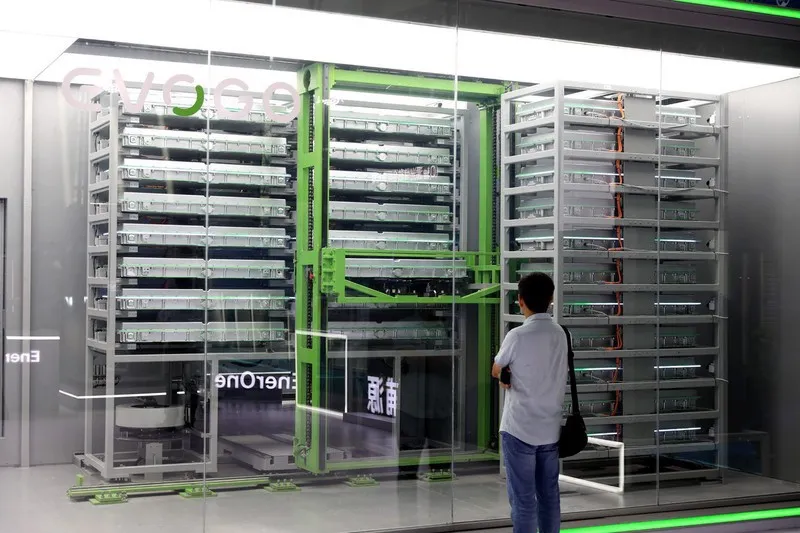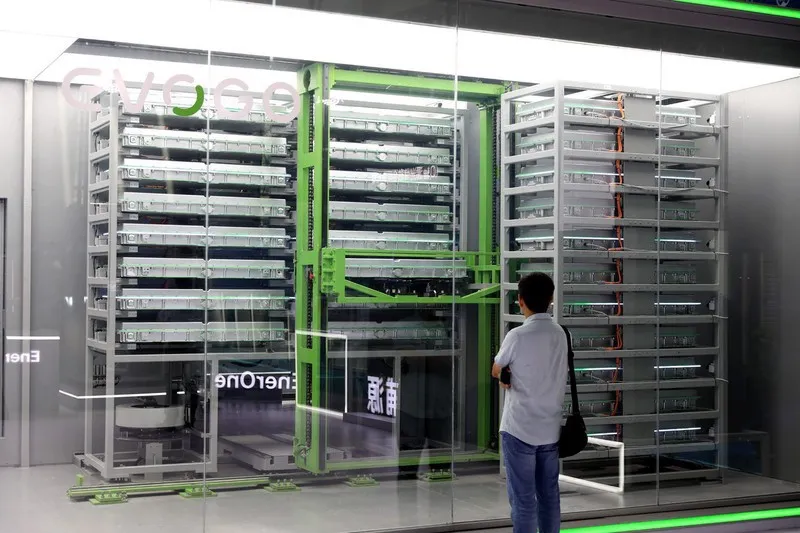
Last year, many Chinese electric vehicle brands represented by BYD have "gone to sea", with remarkable achievements, and as new energy vehicles have become the "military battleground" of major car companies, the development and application of battery and other materials technologies related to them have received more and more attention. In this area, China is undoubtedly one of the leaders and a key link in the supply chain, while some other countries are beginning to be nervous, and even sell "anxiety."
According to Nikkei Asia reported on March 31, Japan and the European Union recently planned to formally cooperate on the development of advanced materials in areas such as chips and electric vehicle batteries, claiming that it was partly "to reduce dependence on China." Iliana Ivanova, European Commissioner for Innovation, Research, Culture, Education and Youth, revealed that the two sides will launch the cooperation framework program in April.

European Commissioner for Innovation, Research, Culture, Education and Youth, Ivanova, from the European Parliament website
"In a true spirit of cooperation and reciprocity, it makes a lot of sense to expand cooperation as like-minded partners and seek cooperation opportunities in our respective research and innovation projects," Ivanova said in an interview with Nikkei.
"Japan and the EU continue to lead the world in advanced materials innovation." She added that the EU and Japan's total investment in the sector by 2020 was 19.8 billion euros and 14 billion euros respectively. "Enhanced dialogue to discuss areas of mutual interest and possible cooperation can only benefit both sides."
Under the framework of the "Dialogue on Advanced Materials", the two sides will regularly discuss cooperation proposals, mainly at the secretariat level, with the participation of Japanese and European institutions engaged in cutting-edge materials research, Nikkei Asia said. Ivanova said that the cooperation between the two sides may include renewable energy, transportation, construction and electronics in the field of materials.
One specific area envisaged by the framework is the development of sodium-ion batteries, which are seen as a next-generation electric vehicle power source of great future value because these batteries not only cost less to produce than conventional batteries, but also do not require the dominant rare metal resources controlled by China.
"With China leading the way in the development of sodium-ion batteries, the EU wants to make great strides in this area as the demand is expected to grow as people switch to electric vehicles." "The report said.
In addition, the EU also wants to use Japan's technology in metal nanoparticles to improve the conversion efficiency of solar panels, while nanoparticles that can help save energy for smartphones are also among the materials under discussion. Going forward, the EU intends to focus its research spending on advanced materials and provide substantial support for development and mass production.
Ivanova said she hoped Japan and the European Union would work together to set international standards for cutting-edge materials. "I would also like to co-develop a standard approach to the safety assessment of nanomaterials based on nanoinformatics (using digital modeling techniques and tools)." This standard approach is also being discussed within the OECD to ensure safety and environmental management in high-tech applications."

The 2023 International Digital Energy Exhibition in Shenzhen, Guangdong province, June 30, 2023. The picture shows the "chocolate for electric block" in the Ningde era. Photo from IC Photo
"Can the world make electric car batteries without China?" The New York Times reported on this topic in May last year that despite billions of dollars of investment by Western countries, China is so far "the only winner" in "one of the defining races of this generation" in manufacturing electric vehicle batteries.
From mining to smelting to component manufacturing, China dominates every link in the electric vehicle battery production chain and is so far ahead that it may take decades for the rest of the world to catch up. Benchmark Mining Intelligence estimates that by 2030, China's battery production will be more than double that of all other countries combined.
"While countries such as the US try to ensure economic security through protectionism, they find it difficult to reduce their dependence on Chinese supply chains for products such as electric vehicles." Japan's Economic News Service also issued a document in September last year, saying that a recent survey conducted by the media showed that the presence of Chinese enterprises in the global high-tech field is further strengthening. According to the survey results, in 2022, Chinese companies expanded their market influence in 18 key product industries, including electric vehicles, battery materials, and liquid crystal display panels, and their performance in electric vehicles and related markets was particularly impressive.
Decoupling and breaking the chain is a double-edged sword, hurting others will also harm their own interests. China does not agree with decoupling and breaking the chain, and decoupling and breaking the chain will not stop China's development. Because our development has always been built on the basis of our own strength, China's scientific and technological progress will not be blocked by any restrictions and repression.
Declaration: This article comes from the Guancha.If copyright issues are involved, please contact us to delete.